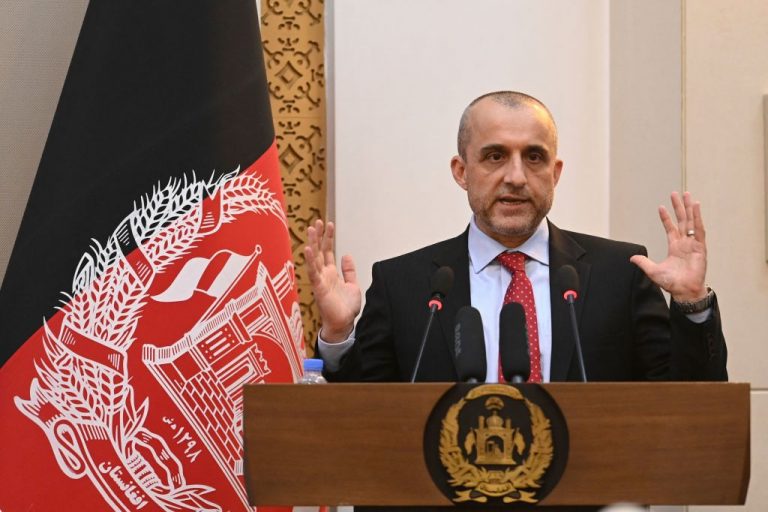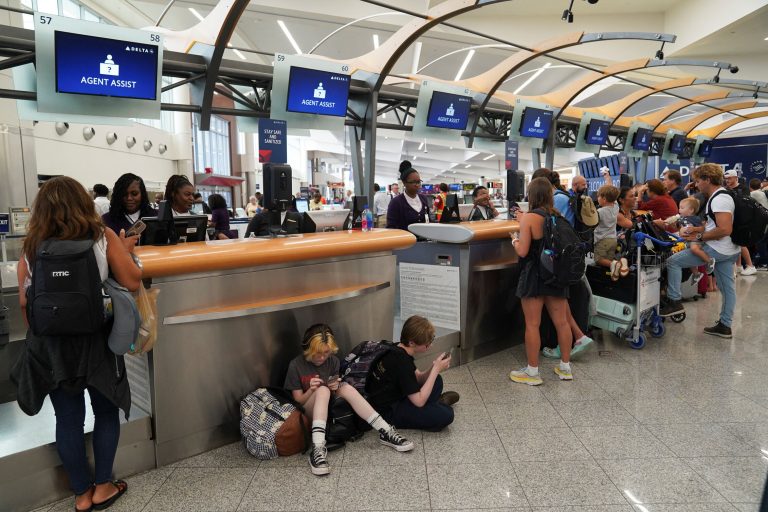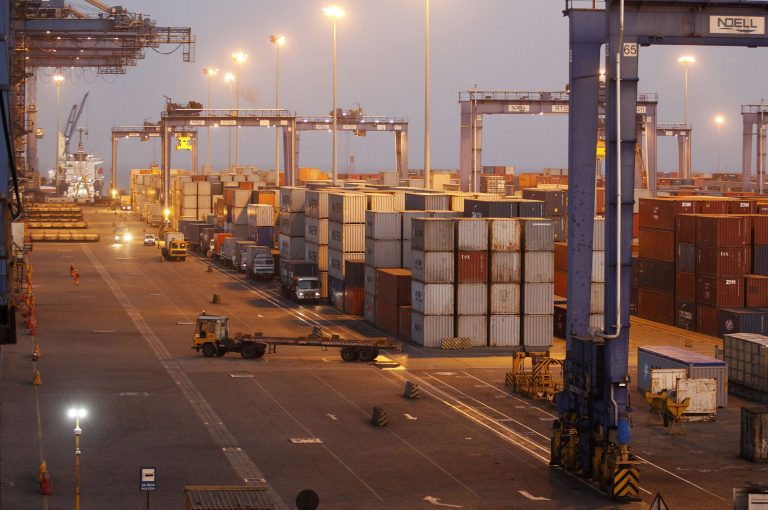One of Afghanistan’s former Vice Presidents, a man who has declared himself acting President under the country’s Constitution, says the ISIS-K terrorist organization that claimed responsibility for the suicide bombings at Kabul Airport that saw 13 U.S. soldiers and more than 100 people killed, is actually just a branch of the Taliban.
In comments made on Twitter on Aug. 26, Amrullah Saleh said, “Every evidence we have in hand shows that [ISIS-K terrorist] cells have their roots in Talibs [Taliban] & Haqqani network particularly the ones operating in Kabul.”
On Aug. 17, Saleh declared on Twitter under Afghanistan’s 2004 Constitution that the First Vice President is appointed President upon the death, escape, or resignation of the President. Saleh said he remains in the country despite the Taliban’s advance and is “reaching out to all leaders to secure their support & consensus.”
An Aug. 23 report by Epoch Times said that former President Hamid Karzai, who served from 2004 to 2014, and Peace Council Chief Abdullah Abdullah also remain in Afghanistan and have been attempting to negotiate with the Taliban since former President Ashraf Ghani defected to the United Arab Emirates on Aug. 15.
A recent article by The Washington Post, relying on anonymous sources from within the U.S. and former Afghanistan governments, revealed a pattern of complacency in both countries’ ranks as the Taliban advanced after President Joe Biden announced a full withdrawal of U.S. armed forces.
Success
You are now signed up for our newsletter
Success
Check your email to complete sign up
Ghani, who appeared to be particularly disinterested in protecting Afghanistan from the siege, left all of his belongings behind and fled Afghanistan on a helicopter with his wife and a few aides on Aug. 15 after advisors isolated Ghani while staff were on a lunch break, telling Ghani he had to leave immediately because the Taliban had breached the Presidential Palace.
The intelligence turned out to be a lie. Instead, the Taliban was said to remain on the outskirts of Kabul as a result of negotiations made by the Biden administration with Ghani the night before to install an “inclusive” interim government.
The Taliban was reported to have even offered Washington an opportunity to maintain control of Kabul until the Aug. 31 troop withdrawal deadline, but the Biden administration declined, saying they were committed to their plans and only needed the Kabul Airport.
Saleh is also joined by military commanders Ahmad Massoud, son of former anti-Soviet Mujahideen commander Ahmad Shah Massoud, and Defense Minister General Bismillah Mohammadi.
In an Aug. 27 interview with EuroNews, Saleh made the following comments when asked why he didn’t join Ghani in abandoning his country, “I am a soldier of Ahmad Shah Massoud and, in his dictionary, there was no such thing as fleeing, exile and leaving the nation in bad moments. If I had escaped, I might have been physically alive, but as soon as I reached any corner of the globe, I would have died instantly.”
Saleh told the outlet that the Taliban was strengthened by the release of thousands of prisoners by Ghani’s administration, an act which allegedly was ordered by Washington, “Unfortunately, the Americans asked us in a very wrong and undiplomatic way to release these prisoners and threatened to cut off economic, weapons and military aid to Afghanistan. We made it clear that if we let go of these prisoners, they would go back to fight us.”
On the contrary, on Aug. 27, Pentagon spokesperson John Kirby said it was the Taliban who had released prisoners, described as members of ISIS-K, from Afghan prisons after taking control of the country. Kirby confirmed the number released was “clearly” in the thousands.
Saleh also said they had intelligence the Taliban had intended to suicide bomb the Kabul Airport, “We knew from two or three days ago that the Taliban wanted to end the airport disaster with a series of bombings…They spread the word that ISIL wanted to carry out bombings. The Taliban is behind today’s bombing.”
He also declared that the Taliban was a “proxy group” for Pakistan.
Officially, ISIS-K claimed responsibility for the suicide bombings while accusing the Taliban of aiding U.S. and other western entities. Joe Biden vowed to enact retribution against the organization for the attack.
Wall Street Journal reported on Aug. 28 that U.S. Reaper drone strikes recently conducted against ISIS-K utilized a previously secret Hellfire Missile dubbed R9X that, rather than deploy an explosive warhead to kill its targets, instead “ejects a halo of six large blades stowed inside the skin of the missile, which deploy at the last minute to shred the target of the strike, allowing military commanders to pinpoint their target and reduce the possibility for civilian casualties.”
After the assault, on Aug. 28 the White House issued a statement saying, “This strike was not the last. We will continue to hunt down any person involved in that heinous attack and make them pay.”
Afghan media outlet TOLONews claimed, however, that the drone strike had killed as many as 10 civilians, including children.
U.S. Central Command (CENTCOM) said it was aware of possible civilian casualties and was investigating in a statement issued on Aug. 29.
Haqqani Network is also Taliban
ISIS-K isn’t the only Taliban-offshoot involved in Afghanistan. An Aug. 27 report by New York Post, relying on an interview with a commander of the Al Isha special forces of Pakistan-based Haqqani Network, Nawazuddin Haqqani, said the group had seized several thousand U.S. biometric scanners and a database of at least 25 million Afghan citizens’ biometric data and was using it to hunt down U.S. supporters trapped in the country.
The U.S. National Counter Terrorism Centre calls the Haqqani Network, headquartered in Pakistan and a known Taliban ally, “The most lethal and sophisticated insurgent group targeting US, Coalition, and Afghan forces in Afghanistan.”
On Aug. 27, Ned Price, spokesperson for the State Department, asserted, “The Taliban and the Haqqani Network are separate entities,” adding, “The Haqqani Network is a designated terrorist organization. We are not coordinating with the Haqqani Network,” according to the Washington Examiner.
On Aug. 28, Kirby’s position was much more ambivalent than his counterpart’s. Kirby told reporters there was “a certain matter of commingling. I mean, there is a marbling, if you will, of Taliban and Haqqani,” as he dodged questions about whether Haqqani Network and the Taliban were connected, according to the Washington Examiner.
Yet on Aug. 30, in an article glorifying Islamic terrorists by Newsline, Anas Haqqani, son of Haqqani Network founder Jalaludin Haqqani and brother of Taliban Deputy Leader Sirajuddin Haqqani, debunked an allegation that the Haqqani Network is a branch of Pakistan’s Inter-Services Intelligence agency by openly admitting, “We are the Taliban,” so as to imply there is actually no distinction between the Haqqani Network and the Taliban terrorist organization, which is not officially an arm of Pakistan.







